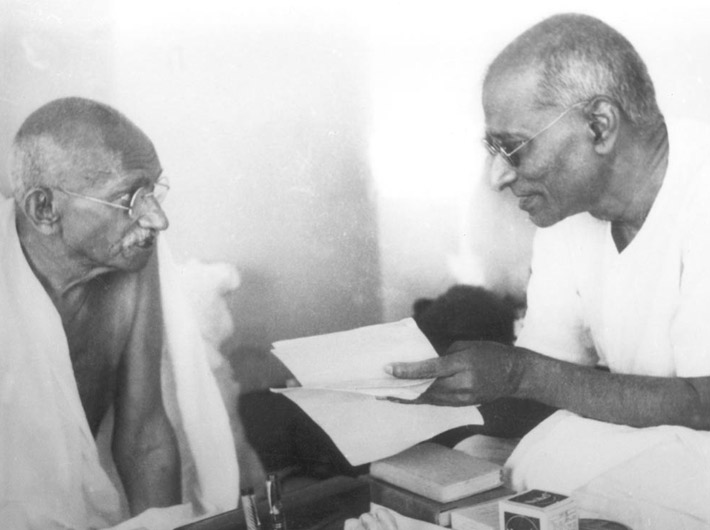An excerpt from 'Selected Works of C. Rajagopalachari'
Selected Works of C. Rajagopalachari: Vol. VIII, 1946–48
By Ravi K. Mishra and Narendra Shukla (Editors)
Orient BlackSwan, 460 pages, Rs 2,575
.jpg)
C. Rajagopalachari, the first Indian Governor-General of India and also the last Governor-General, was not only a close and long-time associate of M.K. Gandhi, he was also his “conscience keeper”. Days after the Mahatma’s assassination, a number of provincial sporting organizations had held a meeting in Calcutta on February 15, 1948, in which Rajaji delivered a speech paying homage to Gandhi.
On the occasion of Gandhiji’s birth anniversary, we reproduced that speech from ‘Selected Works of C. Rajagopalachari: Vol. VIII, 1946–48’. This volume covers the period from April 1946 to December 1948, detailing Rajaji’s important role in the governance of the country, first as a Cabinet Minister, then as a Governor, and eventually as the first Indian Governor-General of India and also the last Governor-General.
This was also a transformative period in the history of India because of Independence and Partition. The volume also covers subjects such as the deep impact of the tragic loss of Mahatma Gandhi, Rajaji’s vision for independent India, his correspondence with Lord Mountbatten, and negotiations with the Nizam of Hyderabad.
Rajaji believed that the youth were the principal force in shaping the country’s future. His addresses to the students and youth of the country, including those of the universities of Madras, Nagpur, Benares and Aligarh, emphasising this, form an important part of the volume.
The editors are Ravi K. Mishra, deputy director, NMML, and Narendra Shukla, head, research and publications division, NMML.
Here is that excerpt from the book:
Essence of Gandhiji’s Teachings: Homage to the Mahatma
CALCUTTA, Feb. 15
“The greatest memorial to Mahatma Gandhi is the independence of India. Let us keep it bright and beautiful, and not make it ugly with hatred and discord,” said the Governor of West Bengal, Mr C. Rajagopalachari.
In Bengal, His Excellency added, next to the independence of India, the peace which he built here some weeks ago was the greatest memorial to him. They must not disrepair that memorial by forgetting his work and spoil the Taj Mahal of Peace, his own mausoleum, which he had built here in his life-time.
Continuing, the Governor said that Mahatma Gandhi was not only a leader of men but a personal friend of thousands and thousands of men and women, who had been in distress and difficulties of all kinds. The loss of a great leader occasioned national grief, but the death of Mahatma Gandhi was something different. It was not a national grief only, but personal grief and personal misfortune to numerous men and women all over India. There was no parallel to him. But, as Sardar Patel had said the other day, it was not right to go on lamenting. “We all know that someday or other he must die. But as we cannot forget the present, his removal has confused us. The voice that preached with firmness and courage, the man who saw truth and lived in truth, has gone. We have lost our precious possession. But now we should not lament. We are now to see what we can do.” The essential thing that Mahatma Gandhi taught, His Excellency said, was that vengeance and anger would serve no purpose. The progress of the country would suffer if that path was followed.
Ultimate progress was made along the path of love and not by retaliation and violence. “We in India today are in a crisis. Today it is essential to recognise the truth that Gandhiji found and taught. But it is a tragedy that he was taken away when he was wanted most. If we do not wake up now and still pursue the path of doubt and hesitations and do not wish to see the doctrine of Gandhiji prevailing in the country, we are helping the murderer in destroying the doctrine of love.”
His Excellency appealed to all to forget the doctrine which taught that evil was prevented by evil. The doctrine which taught them to be unkind to the unkind must be put aside. “If we wish Mahatmaji to be triumphant, if we want victory for him, we must accept the doctrine he preached,” concluded His Excellency.
[The excerpt reproduced with the permission of the publishers. This report originally appeared in The Hindu on February 17, 1948.]


